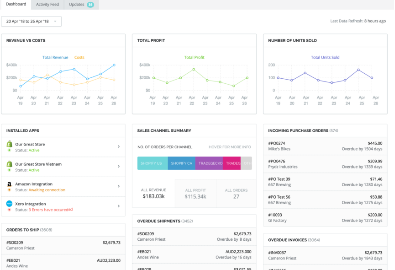The perception towards AI technology is slowly shifting – as more and more businesses are starting to incorporate it. The vast majority of companies are now using AI in some capacity, and consumers are starting to see just how much it benefits them in terms of the online customer experience.
What is even more interesting to see is that companies that use AI experience incredible advantages over their competitors – especially in the e-commerce space.
According to research from Digital Commerce, online businesses that used AI experience a 30% higher sales growth as well as higher gross profit margins. Further, some companies were able to reduce their ad spending by 75% thanks to better targeting with AI!
Many new e-commerce entrepreneurs often feel quite intimidated by the use of AI. After all, this is super futuristic software that is not only complex but also extremely expensive – right?
Wrong.
AI is more accessible than ever before – even for the smallest and newest of e-commerce companies. Additionally, in the fast-paced digital age, using AI is one of the best ways for e-commerce businesses to stay competitive against retail giants like Amazon.
So, in addition to cutting costs and boosting profits, here are three more reasons why AI just might be the most valuable tool for all online businesses.
1. Offers Meaningful Automation
One reason why so many entrepreneurs are attracted to launching an online business – as opposed to a physical store – is because of the little manual work required to keep it running. There is no brick and mortar storefront to build, design, and maintain, and most of the back-end work can be done on your laptop at home or anywhere with a WIFI connection.
Furthermore, many e-commerce platforms claim to offer automated services – but, this does not mean that an online business is necessarily automated. According to a Reddit chain, e-commerce business owners stated that they often worked well over fifty hours a week running their online stores.
AI can help to lighten the load with automated assistance that improves the user experience and helps business owners, too.
For example, AI chatbots can be used for immediate customer assistance, troubleshooting, and even sales.

It can also provide users with features like predictive search and personalized product recommendations that influence the likelihood of conversions – all while lightening the load of work left to e-commerce store owners.
2. Eliminates Issues with Inventory
While e-commerce does provide the opportunity for many entrepreneurs to easily launch their own business, many do not know how to run a business efficiently or profitably. This can lead to lots of wasted time and money due to poor judgement or lack of experience.
But, AI can help through predictive technology that makes processes faster, better, and more cost-effective – specifically when it comes to inventory management.
Having too much – or too little inventory – can eat into profit margins quickly, but it is often difficult for new e-commerce owners to know how much stock they need to have on hand to keep up with orders.
Predictive analytics technology can help e-commerce businesses analyze numerous data points (both internal data from past sales and market-related data) to provide accurate forecasts for the upcoming sales cycle.
This data can then be applied to multiple aspects of inventory management. For starters, business owners can have a better idea of how much inventory to order ahead of time, depending on whether or not a spike in sales is expected.
This can also help to determine the best pricing structure. If demand is increasing, then it may be a good time to up the price to maximize profits.

This (once again) leads to a better user experience. There is nothing more frustrating than trying to checkout only to be told that the item you want is suddenly out of stock.
By using AI’s predictive analysis, e-commerce stores can prevent this from ever occurring in the first place.
3. More Effective Re-Targeting
Most online customers are not going to convert after the first (or even second and third) interaction they have with an e-commerce ad. This is why retargeting those same customers again is so important.
In fact, conversion rates for re-targeted ads are 70% greater than non-targeted ads.
But the key to making re-targeting work so effectively is knowing your audience and how to properly reintroduce them to your product or company. AI is helping to take the guesswork out of targeting and re-targeting for e-commerce – making it much easier to reach customers at the right place and right time.
AI retargeting tools are able to monitor specific webpage visitors’ interactions and behavior to curate hyper-personalized ads.
For instance, you can track a single visitor based off of their IP address and analyze their behavior through cookies. If that visitor peruses your e-commerce pet store site for puppy chew toys, you can re-target them with a post about the best puppy toys on the market.
Given the past behavior, they would likely be quite responsive to a social media ad promoting a chew toy that was on sale.

Conclusion
While AI is certainly not the magical cure to all e-commerce problems, there is certainly evidence that it can be extremely beneficial to online store owners. As AI technology continues to become more sophisticated and accessible, we can only expect to see even more utilizations of it within the online retail space.
In the name of boosting the customer experience, entrepreneurs need to stay sharp and understand when and how to use this technology – both now and in the future.
Jack Shepler is a Marketing and Search Engine Optimization expert. He founded Ayokay, award-winning marketing, and web design firm in Indianapolis, Indiana that has built brands, increased sales for businesses, and helped nonprofit organizations fulfill their missions since 2011. He uses his decades of experience to educate through the Ayokay blog and through public speaking. You can follow him on LinkedIn.







